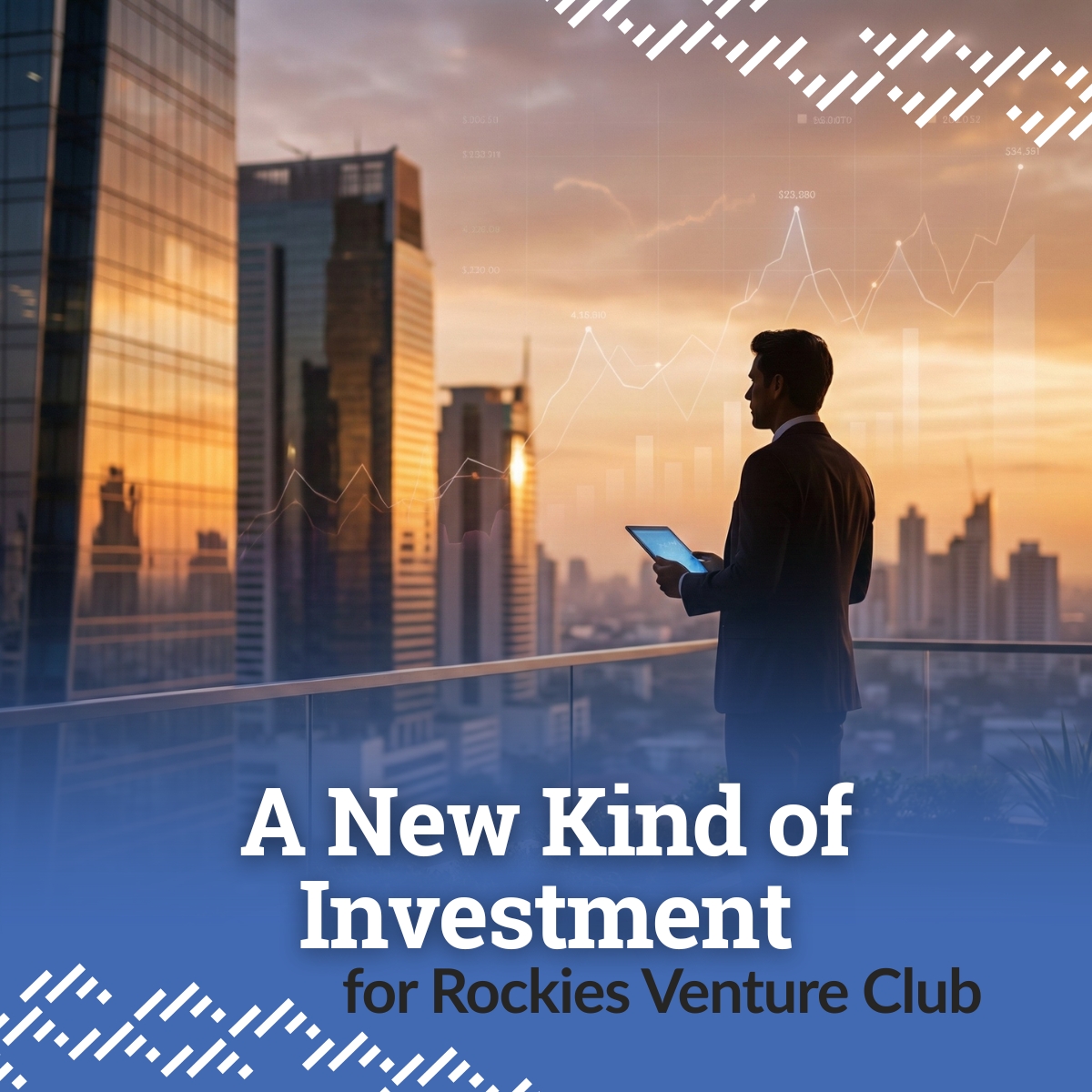
What started as a handful of Colorado investors meeting informally in 1982 has grown into one of the most influential angel investing organizations in America. This September marks 40 years since Rockies Venture Club officially became a non-profit, but our story actually began three years earlier when a small group of forward-thinking individuals started gathering to share deals and investment opportunities.
Back then, nobody called it "angel investing." It was just a bunch of people with capital who saw the potential in Colorado's emerging startup scene and wanted to do something about it.
The Early Days: Before Angel Investing Had a Name

In the early 1980s, Colorado was on the cusp of a transformation. The tech boom was just beginning to take shape, and a small group of investors recognized that something special was happening in our state. They started meeting informally, sharing deal flow and pooling resources to back promising entrepreneurs.
These weren't formal pitch meetings or structured due diligence processes. It was more like a casual investment club where members brought interesting opportunities to the table and others could decide whether to participate. The energy was infectious, and word spread quickly through Colorado's tight-knit business community.
By 1985, this informal group had grown large enough and active enough that it made sense to formalize the structure. On September 9th, 1985, Rockies Venture Club was officially incorporated as a non-profit with a mission to encourage economic development by funding entrepreneurial companies throughout the Rocky Mountain region.
The Only Game in Town
For decades, RVC was essentially the only organized early-stage investment group in Colorado. While other states had multiple angel groups and venture capital firms, Colorado entrepreneurs had one clear destination when they needed early-stage funding: our monthly meetings and annual conferences at various venues around Denver.
Those monthly gatherings became legendary in Colorado's startup community. Entrepreneurs would pitch their companies to rooms packed with potential investors, and the networking afterward was often where the real magic happened. Deals were struck over coffee, partnerships were formed in the parking lot, and mentorship relationships began that would last for decades.
The consistency of these meetings created something special: a reliable venue where Colorado's entrepreneurial ecosystem could gather, connect, and grow. Attendance was strong month after month, year after year, because everyone knew this was where things happened in Colorado's startup world.
The 2011 Transformation
By 2011, RVC had been successfully operating for 27 years under its original leadership structure. The founders had built something incredible, but they also recognized that the angel investing landscape was evolving rapidly. Technology was changing how deals got done, educational resources were becoming more important, and the sheer volume of startup activity was growing exponentially.
In a move that showed remarkable foresight and leadership, the original founders decided it was time to pass the torch. But rather than simply appointing successors, they opened up the organization to pitches from interested parties who wanted to take RVC to the next level.
This decision proved transformative. New leadership brought fresh perspectives, innovative programs, and a renewed focus on what angels and entrepreneurs really needed to succeed.
Education Becomes Central

One of the biggest changes in RVC's modern era has been our focus on education. We realized that writing checks was only part of what a successful angel group should do. Angels needed to understand deal structures, valuation methodologies, due diligence processes, and portfolio management. Entrepreneurs needed guidance on fundraising, business model development, go-to-market strategies, and scaling operations.
This educational focus led to the creation of our Angel Accelerator and HyperAccelerator programs. These intensive programs provide both founders and investors with the knowledge and tools they need to succeed in today's fast-moving startup environment.
The Angel Accelerator helps new angels learn the ropes of early-stage investing, while the HyperAccelerator gives startups the intensive support they need to rapidly scale their businesses. Both programs have become models that other angel groups around the country have adapted for their own communities.
Formalizing the Angel Group
Another major evolution was formalizing the "angel group" structure. While RVC had always facilitated investments, we realized there was an opportunity to take on much more of the heavy lifting involved in getting deals done.
Today, we handle the screening, due diligence, and deal negotiation processes that make investing easier and safer for our members. Instead of every angel having to evaluate every opportunity independently, we have systematic processes that ensure only the most promising companies reach our investor network.
This formalized approach has dramatically improved outcomes for both investors and entrepreneurs. Our investors get access to better deal flow with less individual effort required, while entrepreneurs get faster decisions and more professional feedback.
The Syndication Solution
As we've moved into our fifth decade, we've identified a critical challenge facing startup communities everywhere: the math just doesn't work anymore for small, isolated angel groups.
The average angel check today is still $10,000 to $50,000, but the average startup raise is now well above $1 million. This means it's almost impossible for small communities to fully fund their local startups, no matter how promising those companies might be.
Our solution? Syndication platforms that connect angel communities locally, regionally, and nationally.
We're building systems that make it easy for angels from different communities to work together on deals, sharing not just capital but also expertise, networks, and resources. A promising Colorado startup might get funding from angels in Denver, Colorado Springs, Salt Lake City, Phoenix, and beyond: all coordinated through streamlined syndication structures.
Making It Easy and Profitable
The future of angel investing isn't just about connecting more investors to more deals. It's about making the entire process more efficient, more profitable, and more fun for everyone involved.
We're leveraging Colorado's generous economic development incentives to offer tax-advantaged investment structures that can deliver tax-free returns to our angels. Combined with streamlined syndication processes, these innovations make it easier than ever for investors to participate in deals while maximizing their returns.

But perhaps most importantly, we're preserving what has always made RVC special: the community aspect. Angel investing isn't just about financial returns: it's about building relationships, supporting entrepreneurs, and growing your local economy. The friendships formed through Rockies Venture Club have been just as valuable as the financial returns over the past 40 years.
Looking Forward
As we celebrate four decades of Rockies Venture Club, we're more excited about the future than ever. The challenges facing startup communities today are real, but so are the opportunities.
Colorado has an incredible entrepreneurial ecosystem, and we're working to ensure that promising startups throughout our state have access to the capital, expertise, and networks they need to succeed. By connecting our local community to regional and national syndication networks, we're not just solving the funding gap: we're creating new opportunities for Colorado companies to scale beyond what any single community could support.
The next 40 years of Rockies Venture Club will be defined by connection, collaboration, and community. We're building the infrastructure that will power Colorado's startup ecosystem for decades to come, one deal and one relationship at a time.
Want to be part of Colorado's angel investing story? Learn more about membership and join us as we write the next chapter of RVC's history.






.jpg)




